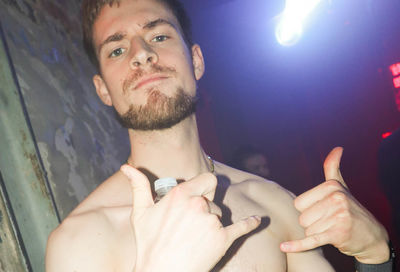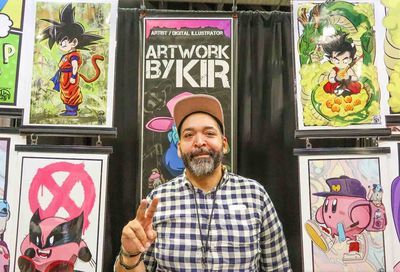Transformation Train
Alphabet Soup
It’s April 1993, and we are golden. Everywhere we look, we are affirmed — everyone’s smiling and friendly, and after my first six months in a major metropolitan area, I feel transported back to somewhere familiar, somewhere safer. It’s as if I’m back in Iowa, but it’s been painted rainbow — and there’s more activity.
Forget for a minute that later in the evening, my car will be broken into and luggage belonging to decent, honest, vulnerable and naïve friends visiting from Iowa will be stolen. That’s not important.
|
What matters is that my new city is teeming with queers, all in town for the gay civil rights movement’s March on Washington, and I’m headed by Metro to Dupont Circle. We’re all here on this train — lesbians, gay men, bisexuals, transgenders, our straight supporters, the still-undetermined, the open-minded. And a handful of people going about their business and quite likely wondering what on earth is going on.
I don’t know it yet, but I’m about to have a transforming experience — in a Metro station. What happens is, we get off the train and proceed toward the exit. We head toward Q Street, out of habit maybe, or because it seems to us like most of the gay stuff is that way. We feel a homosexual calling of sorts.
What transforms me is that I step onto the escalator, the insanely long one, where you can easily lose three minutes of your life if you don’t feel like using your leg muscles. We ride it up, each of us languishing on a step, occasionally adjusting our grip on the handrails that for some reason never keep time with the stairs. At first it feels like a regular day, just a little crowded, like rush hour in a gay new world.
But as we ascend we hear, and then we see, that the sky above us has turned gay too. Throngs of people are pressed against the cement semi-circle from which and into which the escalators emerge and disappear. What we see when we look up is a mass of rainbow-flagged, lambda-infused, pink-triangle-enchanted activists for a weekend. They’re leaning over the cement, looking down, welcoming us with shouts and applause.
It is my gayest moment ever.
What we hear is that they’re yelling, screaming, cheering our arrival — our existence. We are famous, suddenly. We are rock stars, we are Neil Armstrong, we are soldiers returning home from war. They can’t stop, they love us, and we’re eating it up.
When we reach the top of the escalator, we are dumped out into Dupont Circle, greeted by more queers, window displays welcoming us and supporting our goals. As we step away from the Metro station and toward Homo/Bi/Trans Central, I look back and see the backs, raised arms and wildly clapping hands of all those people who just recharged my queer batteries. It occurs to me then that this welcome committee is made of people like me — well, OK, maybe they’re not technically on assignment for a newspaper, so they’re allowed to be a little more rowdy and a little more outspoken. But they’re apparently performing this function out of a sense of camaraderie, a spontaneous volunteerism.
Ten years later I can look back cynically and wonder what national organization paid them to stand there and cheer — but who cares? The moment is not branded in my memory with the iconography of any one interest except that we all deserved full civil rights. They made all of us feel like queens for a day — for a lifetime.
Ten years later my station in life brings me up and down that escalator every workday, and I can still get chills when I glance skyward and remember the throngs that greeted us that afternoon.
It’s one of my favorite things about D.C. and about the neighborhood where I work, that my early days here were so embossed by that one moment. By that point I was out to everyone I knew, but it still marked an important emergence, another type of coming out, for me and most likely for the people around me. It was my first march on Washington of any sort and certainly my first gay gathering of that magnitude.
Before I moved to the D.C. area, the pride events I’d been to in Midwestern urban enclaves like Des Moines and Kansas City and Chicago were incredible, sure. Who knew there were so many openly gay people out there on the prairie?
But those events had been nothing like that moment in this city, launched by and forever sealed into memory with that one experience on a Metro system escalator.
The next time hordes of gays came to Washington from all over the country was in 2000 for the Millennium March. It was a completely different experience for me — I was older, a little more jaded, and I’d been livin’ la vida homo for several years by then.
My mom traveled out from Iowa to take part in the event, so it was special to me from that perspective — what she had not been ready for or terribly interested in back in 1993 had become something she fervently wanted to do at the turn of the millennium. But there was no single moment like that fantastical escalator ride in Dupont Circle seven years earlier.
Maybe it has everything to do with being 22 and fresh off the figurative farm. Maybe there was nothing magical about hordes of people applauding and waving their gay paraphernalia as we traveled upward and outward from the dark depths.
But the memory stays with me, unmatched. The planners of the next gay march on Washington — whenever such an event may transpire, and it’s fine with me if it’s not anytime soon — have their work cut out for them.
Kristina Campbell rides the Metro every weekday, and welcomes applause. She writes “Alphabet Soup ” biweekly and can be reached at kcampbell@metroweekly.net.
Support Metro Weekly’s Journalism
These are challenging times for news organizations. And yet it’s crucial we stay active and provide vital resources and information to both our local readers and the world. So won’t you please take a moment and consider supporting Metro Weekly with a membership? For as little as $5 a month, you can help ensure Metro Weekly magazine and MetroWeekly.com remain free, viable resources as we provide the best, most diverse, culturally-resonant LGBTQ coverage in both the D.C. region and around the world. Memberships come with exclusive perks and discounts, your own personal digital delivery of each week’s magazine (and an archive), access to our Member's Lounge when it launches this fall, and exclusive members-only items like Metro Weekly Membership Mugs and Tote Bags! Check out all our membership levels here and please join us today!




















